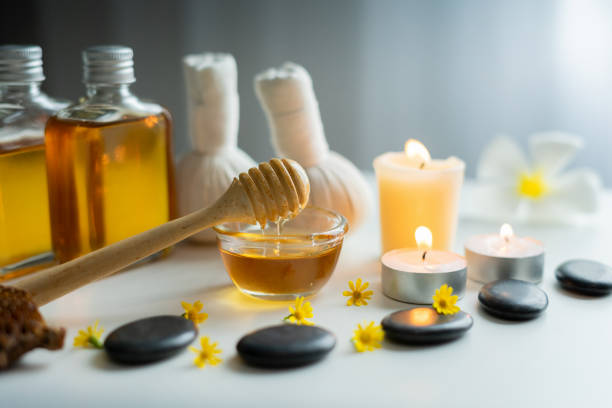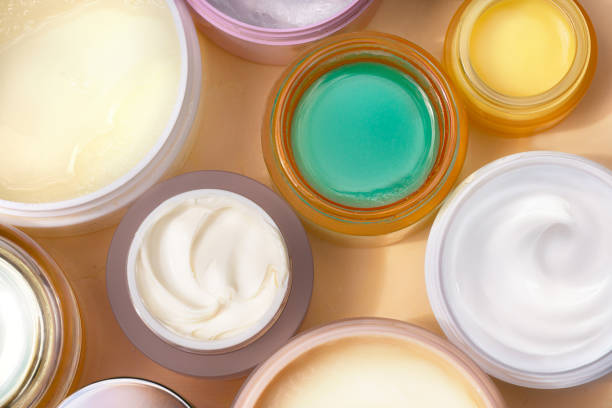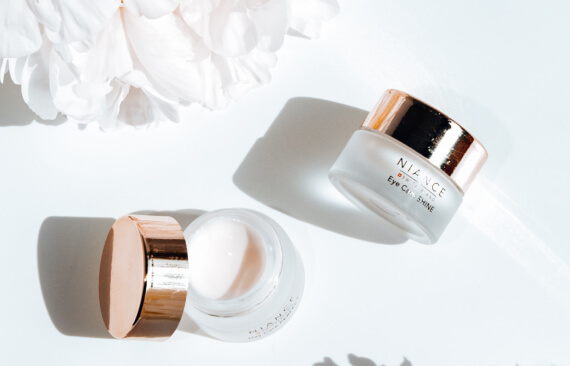Wear sunscreen
Most people know that wearing sunscreen with a sun protection factor (SPF) over 30 can help prevent skin cancer. While you probably already wear a sunscreen for the beach, wearing a moisturizing sunscreen on your face each day is a habit that will benefit your skin health long-term.Personalized treatments for fine lines and wrinkles, with advanced formulas to even out
skin tone and cutting-edge technology for firmer, smoother skin.
Limit your sugar intake
The medical community continues to learn more about how sugar consumption can affect your health. Sugar in your body sets off a process called glycation, and advanced glycation end products (called AGEs) are no goodTrusted Source for your skin. AGEs break down the collagen in your body and, over time, can make you look older. AGEs have also been linkedTrusted Source to food preparation methods such as grilling and frying (as opposed to baking and boiling). Limiting your intake of sugar and oil-rich foods will help your face retain its youthful shape.*8Cut out smokingSmoking is bad for your health for lots of reasons, but many people don’t know that it can
age your face prematurely. One fascinating study compared the faces of 79 pairs of identical twins in which one had a smoking habit and the other one didn’t. The striking differences in their ages made it clear that smoking does affect the condition of the skin on your face. Even being around secondhand smoke can increase your risk for many cancers and other diseases, and it may hurt your skin as well.
Use coconut oil
Coconut oil is a natural emollient. That means when you apply it to your skin, it fills in the gaps in your epidermis and makes your skin feel smooth. Showing your skin some love with coconut oil doesn’t just make it smoother, it also helps skin retain moisture, which makes your face appear fuller. As an added bonus, coconut oil has been studiedTrusted Source and found to be an effective treatment for
dry skin.
Boost your beta carotene
There’s an ongoing medical debate on how and why beta carotenes block the sun’s ultraviolet light from damaging your skin and eyes. Beta carotene and
retinol (vitamin A) are often ingredients in the cosmetic anti-wrinkle creams available to buy on the market. But you don’t have to buy a product to get access to beta carotene; you can simply take a beta carotene supplement and see the benefits in your skin. As little as 30 milligrams per day of beta carotene, taken orally, can prevent and repairTrusted Source photoaging (otherwise known as wrinkles).
Try lemon balm leaf tea
One of the newer holistic strategies to emerge for wrinkle fighting is lemon balm leaf tea. A study that compared a small sample of people drinking lemon balm leaf tea to another group drinking a placebo of barley leaf tea led researchers to concludeTrusted Source that lemon balm leaf extract makes skin more elastic and corrects tissue damage.
Switch up your sleep position
Some wrinkling on your face can actually be caused by the position that you sleep in. It’s called “compression,” and it’s caused by your face pressing against the pillow in the same way every night. Over time, this compression leaves your skin weaker in some places than others, and a wrinkle forms. You can prevent or slow down compression wrinkles by sleeping on your back.
Wash your face regularly
Taking that extra three to five minutes to wash your face at night is never a waste of your time. When you leave makeup on your face over night, your skin absorbs most of it. Since most cosmetics contain harsh chemicals, this contributes to the oxidative stress your skin faces. That’s why taking an extra three to five minutes to wash your face at night is never a waste of time. Avoid vigorously scrubbing your face. Use a water-based wipe to cleanse your face before you go to sleep, and finish your wash with some cold water splashed across your skin.
Avoid ultraviolet light
Ultraviolet light is the ultimate cause of most wrinkles on your face, neck, arms, and hands. And while ultraviolet light can’t be completely avoided, there are steps that you can take to lessen the degree of exposure that you receive. Opt for a sunless tanning lotion over long sunbathing sessions in the sand, and wear a hat that shields your face from the sun during long periods outdoors. When possible, wear longer pants and long-sleeved shirts when you’re adventuring outdoors. You’ll still absorb some sunshine, but you won’t be contributing to the wrinkles on your skin.
Up your antioxidants
Skin is exposed to more oxidative stress than any other organ in your body. That means your skin can be damaged just by going through your daily routine. Antioxidants help fight the damage that oxidative stress does to your cells. While you can purchase a sunscreen or wrinkle cream enriched with antioxidants, there are plenty of other ways to get that antioxidant boost for your skin. Eating a diet rich in blueberries, kidney beans, grapes, kale, and spinach will help you get healthy skin “from the inside out” and could reduce the signs of premature aging.
Use a retinoid
Retinoids, derived from vitamin A, are among the most researched
anti-aging ingredients.They can help boost collagen, improve skin texture, and reduce fine lines. Start slow and consult your dermatologist to choose the right type for your skin.
Moisturize regularly
As you age, your skin gets drier, making wrinkles more noticeable.Moisturizers with hyaluronic acid, peptides, or glycerin can help keep your skin plump and hydrated. Ask your dermatologist for personalized product suggestions.
Stay hydrated
Drinking plenty of water supports overall skin health. While water alone won’t magically erase wrinkles, staying well-hydrated helps your skin function better.Combine water intake with a good topical moisturizer for the best effect.
Eat vitamin-rich foods
What you eat shows on your face. Diets high in fruits, vegetables, and healthy fats can support skin elasticity and reduce the appearance of wrinkles.Avoid excessive red meat and junk food, which are linked to increased facial aging.
Sleep on your back
Sleeping on your side or stomach can cause creases to form on your face over time.Try sleeping on your back to reduce pressure on your skin. Silk pillowcases may also help by reducing friction against your face.
Don’t smoke
Smoking accelerates skin aging and causes wrinkles — especially around the mouth.It also reduces your skin’s ability to heal and regenerate by lowering vitamin D levels. Quitting smoking can significantly improve your skin health.
Avoid repetitive facial expressions
Constant facial movements like frowning, squinting, or pursing your lips can lead to permanent lines.If you squint often, consider wearing sunglasses or updating your prescription. Stress-relief techniques can also help you relax your facial muscles.
Manage stress
Stress can show up on your face. Frowning and tension in your facial muscles can deepen lines over time.Practice mindfulness, yoga, or deep breathing to lower stress and protect your skin’s appearance.
Start early
Taking care of your skin in your
20s sets a strong foundation, but even starting later can help.



